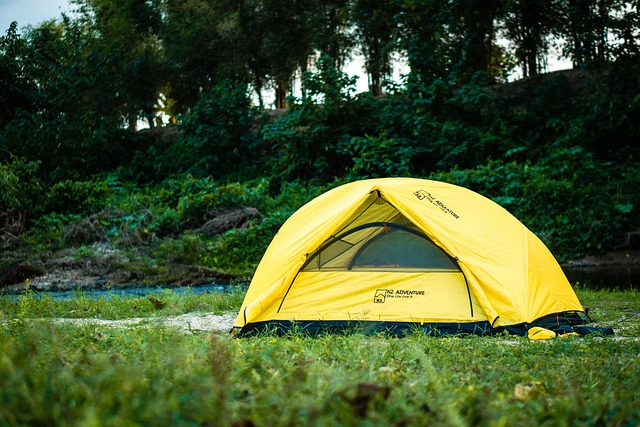Traveling
10 Tips for First-Time Campers: What You Need to Know
Camping for the first time can be an exciting yet daunting experience. The idea of spending a night under the stars, away from the comforts of home, might seem challenging, but with a little preparation, it can become one of the most rewarding adventures you’ll ever embark on. To help ease your way into the great outdoors, here are 10 essential tips for first-time campers that will ensure a smooth and enjoyable trip.
1. Choose the Right Campsite
Selecting the right campsite is crucial for a positive camping experience. As a beginner, consider starting with a developed campground that offers basic amenities like restrooms, potable water, and fire pits. Look for campsites that are relatively close to home and easy to access. Check online reviews and campground maps to ensure the location suits your needs and comfort level.
2. Invest in Quality Gear
While it’s tempting to cut costs, investing in quality camping gear can make a significant difference in your experience. A good tent is the cornerstone of your camping setup. Make sure it’s waterproof, easy to set up, and spacious enough for your group. Similarly, a reliable sleeping bag rated for the expected temperatures and a comfortable sleeping pad are essential for a good night’s sleep. Remember, your gear is your lifeline in the wilderness, so choose wisely.
3. Practice Setting Up Your Tent
One of the most common mistakes first-time campers make is waiting until they arrive at the campsite to figure out how to set up their tent. Practice pitching your tent at home or in your backyard before the trip. This will familiarize you with the process, ensure you have all the necessary parts, and help you avoid the frustration of trying to set up camp in the dark.
4. Plan Your Meals
Meal planning is key to a successful camping trip. Simple, easy-to-cook meals are best for beginners. Plan each meal ahead of time and prepare ingredients at home to save time at the campsite. Pre-cooked or packaged foods can be a lifesaver. Don’t forget to pack snacks for quick energy boosts throughout the day. Bring a portable stove or grill if campfires aren’t allowed, and make sure you know how to use it before you leave home.
5. Pack Smart
Overpacking is a common pitfall for first-time campers. Focus on packing only the essentials and items that serve multiple purposes. Create a checklist of everything you need and stick to it. Remember to bring clothing suitable for the weather, a first aid kit, insect repellent, sunscreen, a flashlight or headlamp, and extra batteries. Don’t forget to pack trash bags to keep your campsite clean and adhere to the “Leave No Trace” principles.
6. Dress in Layers
Weather can be unpredictable, especially in the wilderness. Dressing in layers allows you to easily adjust to changing temperatures throughout the day. Start with a moisture-wicking base layer, add an insulating layer for warmth, and top it off with a waterproof and windproof outer layer. Don’t forget a hat and gloves for chilly mornings and evenings.
7. Understand Campfire Safety
A campfire is often the centerpiece of a camping experience, but it also comes with responsibility. Always check the campground’s rules regarding fires and make sure they are permitted. Use existing fire rings, keep your fire small and manageable, and never leave it unattended. Have a bucket of water or sand nearby to extinguish the fire completely before going to bed or leaving the campsite.
8. Learn Basic Navigation
Even if you’re camping in a well-marked campground, it’s important to have basic navigation skills. Familiarize yourself with the area using a map, and bring a compass or GPS device. Know how to read trail markers and signs. If you plan on hiking, make sure you stick to designated trails and inform someone of your route and expected return time.
9. Respect Wildlife
One of the joys of camping is experiencing nature up close, including encounters with wildlife. However, it’s crucial to respect these animals and keep a safe distance. Never feed wildlife, as it can be harmful to both you and the animals. Store food and scented items securely to avoid attracting unwanted visitors to your campsite. Bear-proof containers are a must if you’re in bear country.
10. Embrace the Experience
Camping is about more than just spending a night outdoors; it’s about disconnecting from the digital world, immersing yourself in nature, and enjoying the simplicity of life. Take the time to relax, explore, and appreciate your surroundings. Whether it’s stargazing, hiking, or simply sitting around the campfire sharing stories, embrace the opportunity to unwind and recharge.
Final Thoughts
Camping for the first time can be a bit intimidating, but with the right preparation and mindset, it can also be incredibly fulfilling. By following these 10 tips, you’ll be well on your way to a successful camping adventure. Remember that it’s okay to make mistakes and learn as you go—camping is all about enjoying the journey. So pack your gear, head into the great outdoors, and create memories that will last a lifetime!
